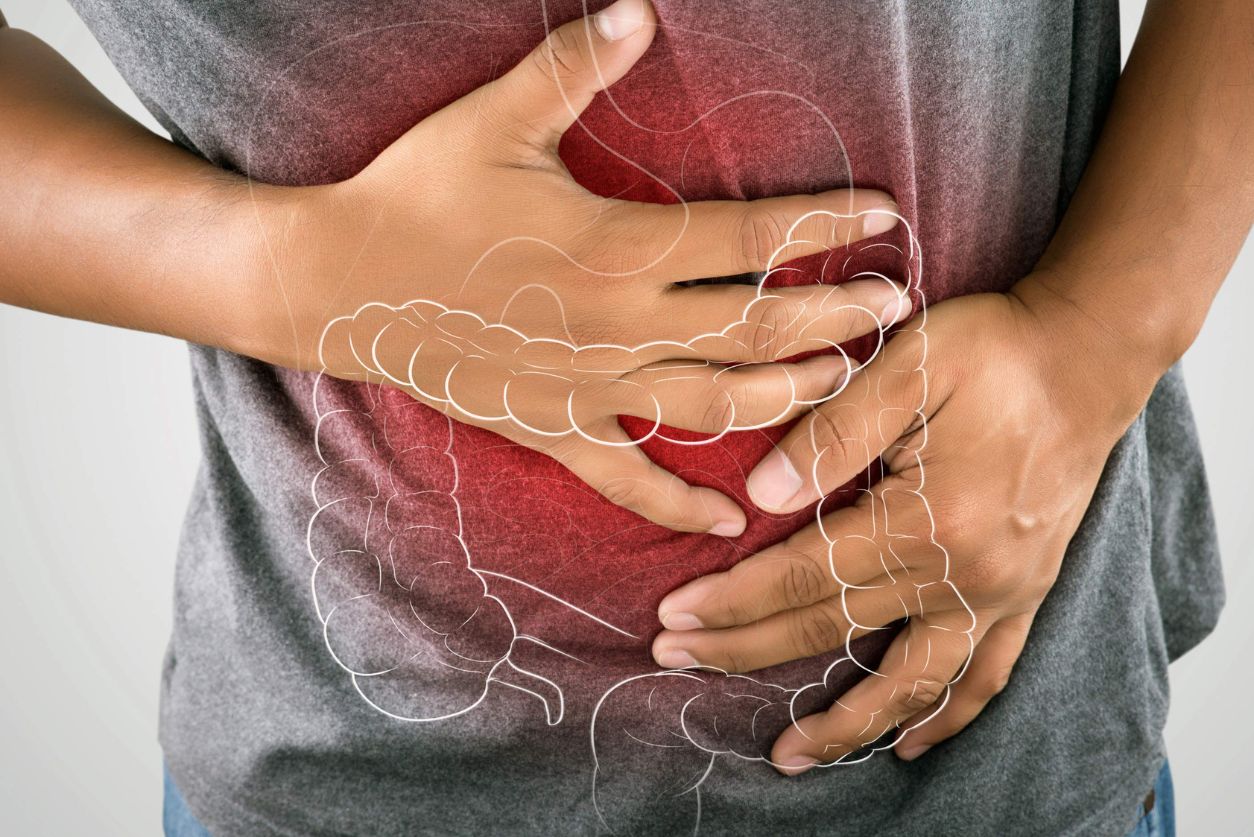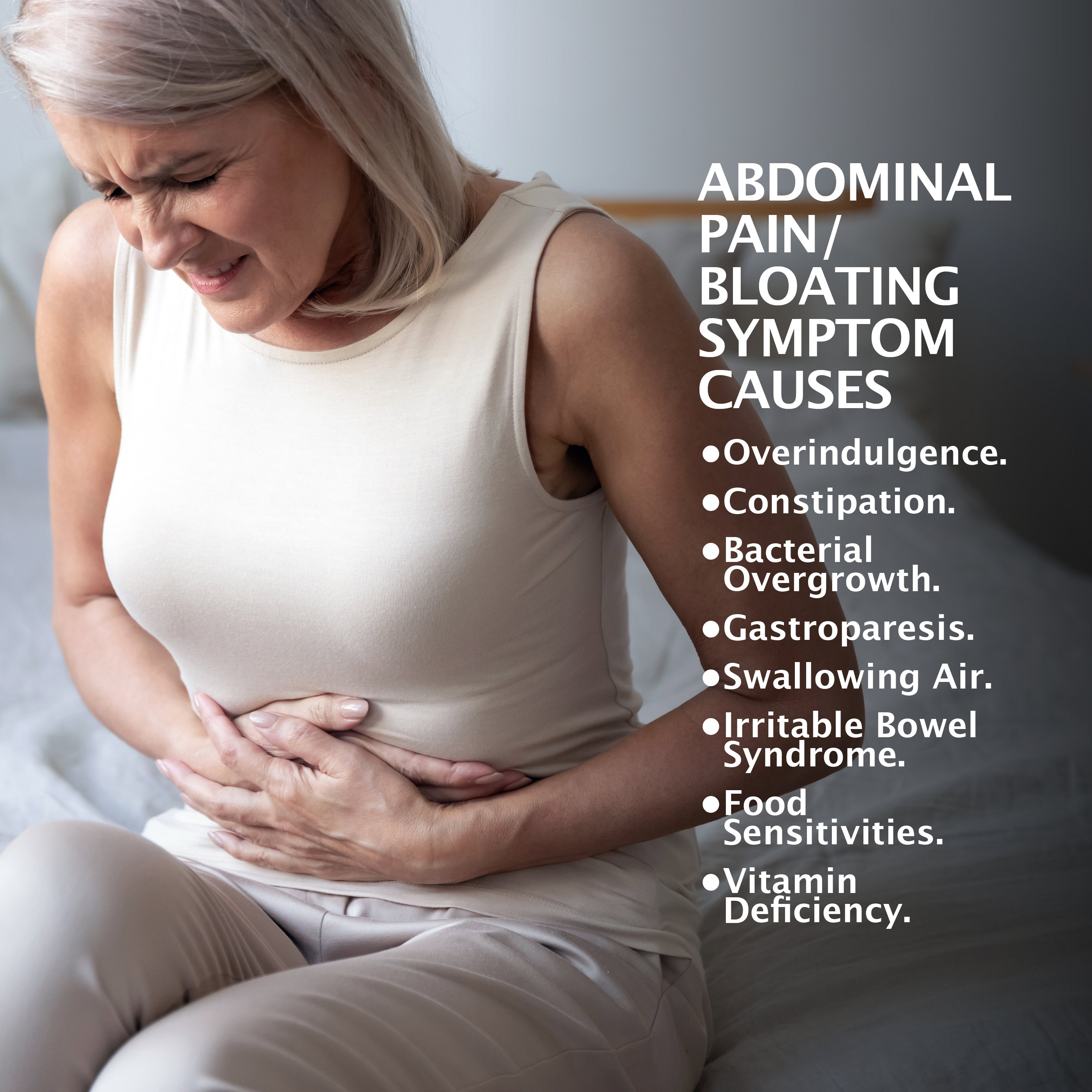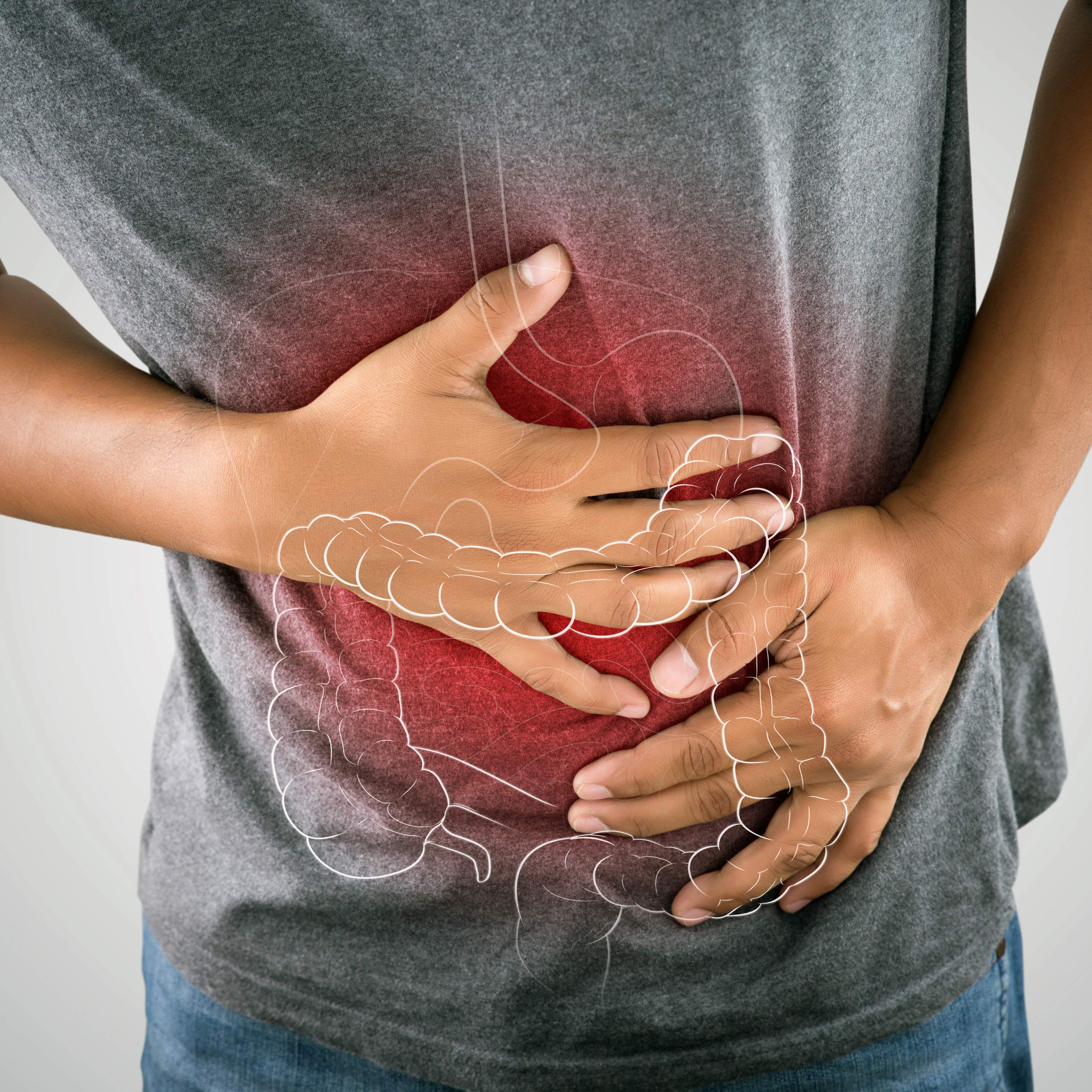
Abdominal Pain & Bloating
Your abdominal region is large and contains the organs of the digestive tract. When any of these malfunction or become damaged, negative symptoms can occur. One negative symptom is abdominal bloating and associated abdominal pain.
Abdominal Bloating Overview
Bloating is a full and tight-feeling stomach. In many instances, it occurs from an excess gas buildup.
Causes
The causes of abdominal bloating can vary from simple, relatively benign conditions to serious, potentially life-inhibiting issues. Common underlying conditions include:
Overindulgence
At some time, almost everyone has consumed a good meal in excess. When you ingest more than the digestive tract can readily process at a given time, your abdominal region responds by expanding.
Constipation
Constipation occurs when you release fewer bowel movements. The accumulation of fecal matter inside your large intestine can result in abdominal expansion. It is fairly normal to experience a certain degree of abdominal pain when constipated. This is because unreleased stools have increased bacterial levels.
Bacterial Overgrowth
Abdominal bloating sometimes results from an ailment called small intestine bacterial overgrowth, which is often simply abbreviated as SIBO.
Gastroparesis
This condition is the delayed emptying of food contents from your stomach. As a result, the digestive process is slowed, which can lead to abdominal bloating.
Swallowing Air
As a force of habit, you might swallow measurable quantities of air. Excessive air inside your abdominal region often produces excess gas, which causes bloating.
Irritable Bowel Syndrome
This illness, also commonly called IBS, can occur for various reasons and has been known to produce excess gas and cause abdominal bloating.
Food Sensitivities
Your body might be sensitive to substances contained in specific food items. For example, persons with celiac disease experience a host of bad reactions after eating products with gluten. If you are lactose intolerant, you can experience several uncomfortable digestive issues after eating dairy products.
More Serious Illnesses
Less frequently, abdominal bloating can be caused by more serious concerns, such as various digestive tract diseases, inflammatory bowel disorders, infections, acid reflux disease, and problems originating in other body regions like the reproductive tract.

Accompanying Symptoms
Abdominal bloating and pain are often accompanied by other symptoms. The most familiar are belching and abdominal noises like hissing, rumbling, and gurgling. More severe symptoms might also produce:
- Nausea.
- Vomiting.
- Diarrhea.
- Elevated body temperature.
- Unintended weight loss.
- Bowel movements tinged with blood.
- Heartburn.
- Gynecological issues like vaginal bleeding.
Naturally, specific symptoms depend on the underlying cause. If you have bloating, joined by noticeable abdominal pain and any of the preceding symptoms, schedule a consultation with your physician.
Risk Factors
Specific actions can heighten your risk. For example, swallowing air, routinely consuming gassy foods like beans, certain types of green vegetables, and bran products, in addition to excessive alcohol intake, can increase gas concentrations.
Complications
Repeated abdominal bloating can indicate the presence of a significant illness. If left unchecked, such disorders can produce complications, including digestive tract damage, disability resulting in interference with daily activities, illnesses spreading to other bodily regions, and possibly even death.
Diagnosis
It’s important to realize that abdominal bloating is a symptom and not a specific illness. Diagnosis is crucial to determining the primary cause.
Confirming a specific ailment might take some time and need several diagnostic tests. Typically, your physician will begin the process by asking questions, such as:
- When did the bloating and abdominal pain start?
- Are the problems worsened after eating or consuming specific foods or beverages?
- What other physical symptoms occur in conjunction?
- Do these issues interfere with routine activities?
- What are your dietary habits?
- Do you swallow air?
- Do you have a family history of any serious illnesses of which abdominal bloating is a symptom?
After taking this initial assessment, they may order diagnostic investigations, such as blood tests, food sensitivity tests, ultrasounds, and internal imaging efforts, like endoscopy, colonoscopy, sigmoidoscopy, X-Rays, in addition to MRI (Magnetic Resonance Imaging) and CT scans (Computerized Tomography).

Treatment Options
Treatment depends on the specific causing illness. Simple, non-threatening conditions can be treated with lifestyle and dietary changes, over-the-counter, and prescription medications. More serious illnesses may need more aggressive treatments like chemotherapy and surgery.
Contacting Us
Regardless of its underlying cause, bloating can be annoying, cause abdominal pain and other bothersome to serious symptoms, and sometimes be disabling.
Our practice began more than 15 years ago and has emerged as one of the leading gastroenterology practices in central Florida. We perform a host of diagnostic procedures using state-of-the-art equipment in a friendly, comfortable and inviting atmosphere where patient care is always a top priority. Contact us today!